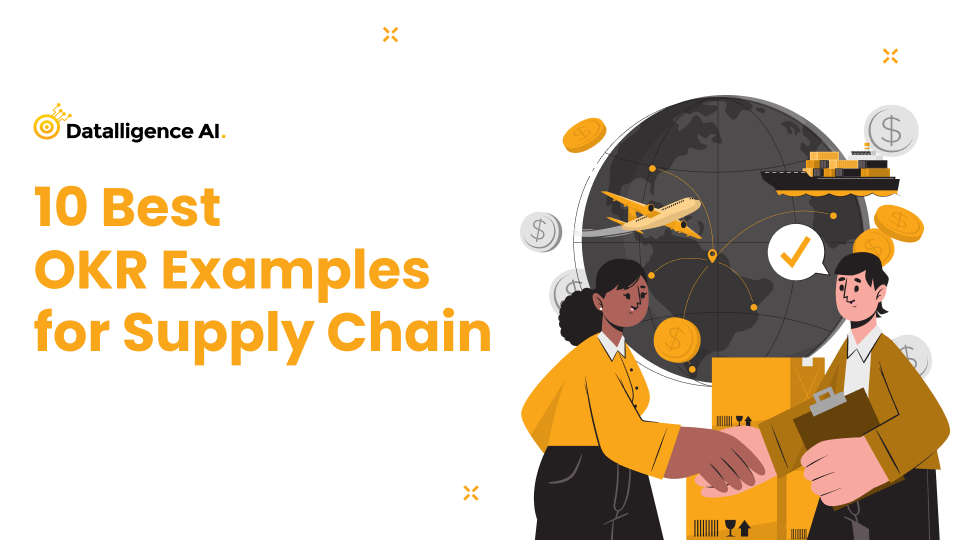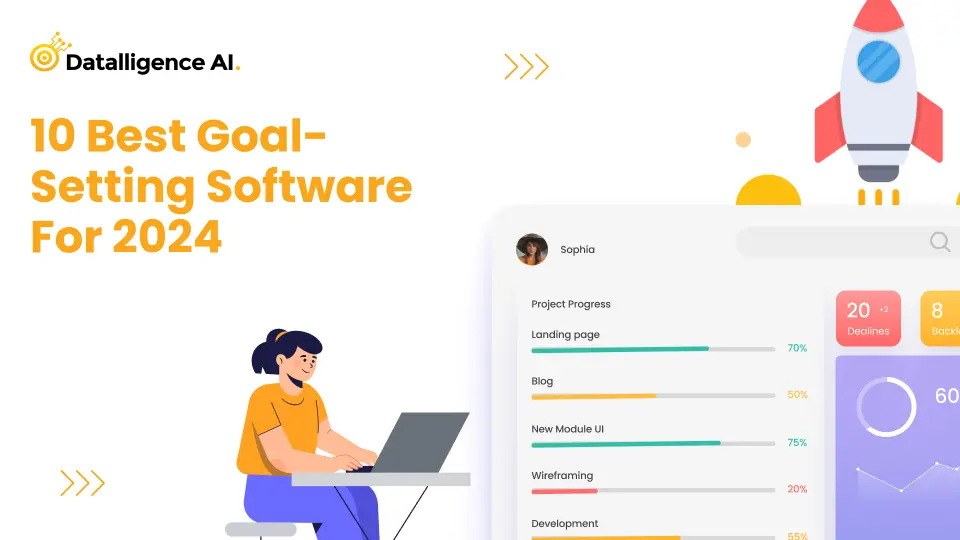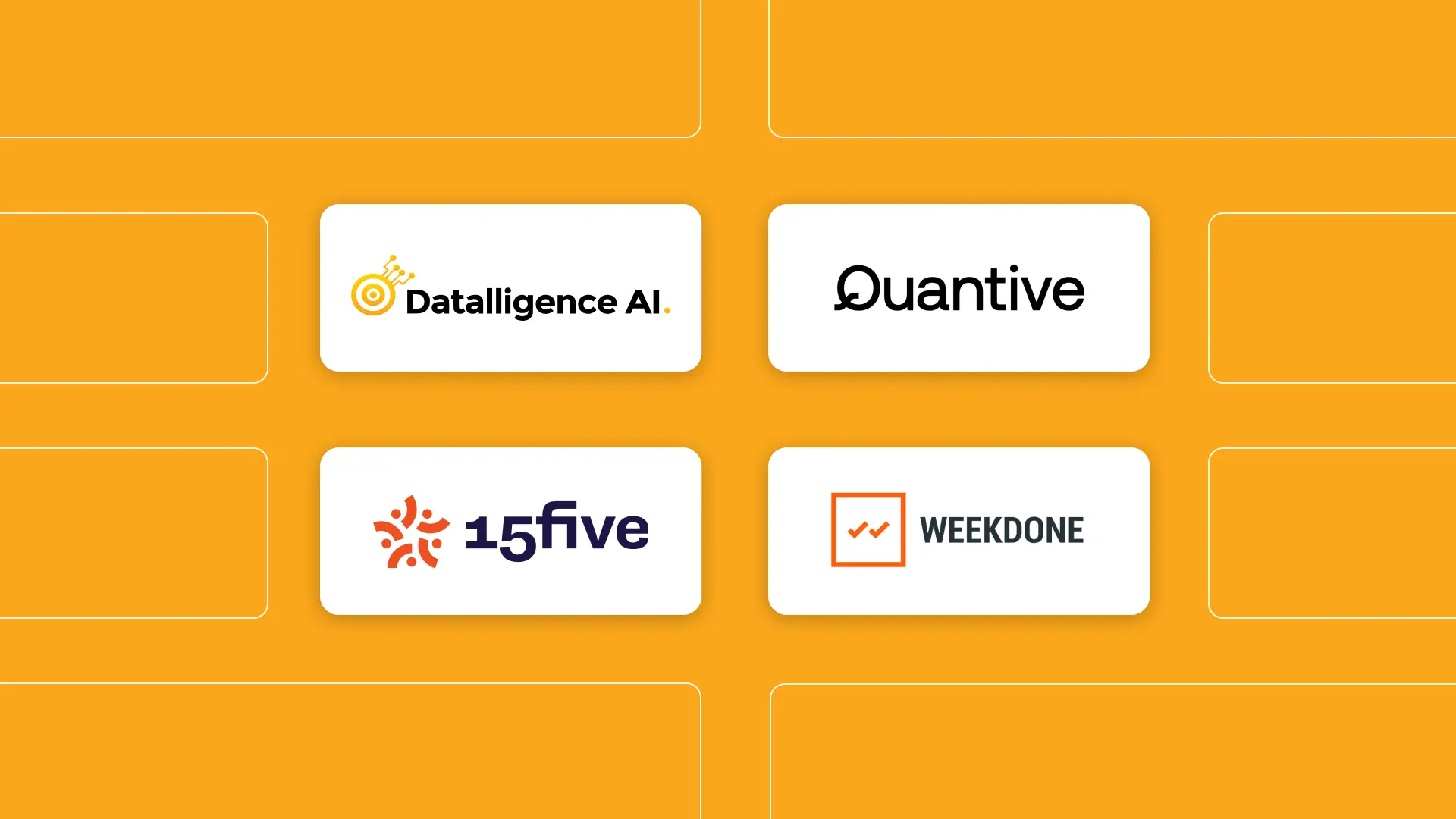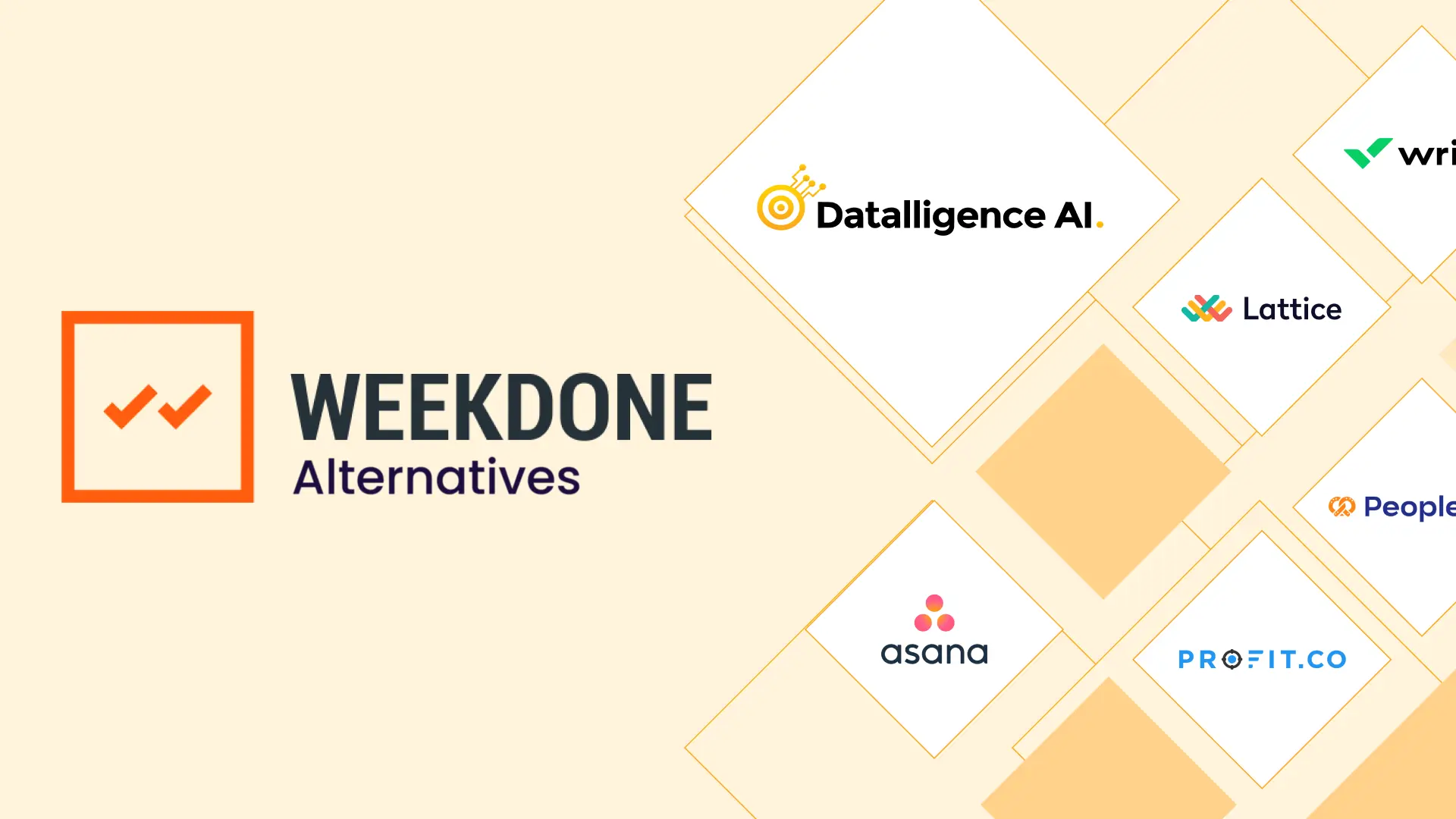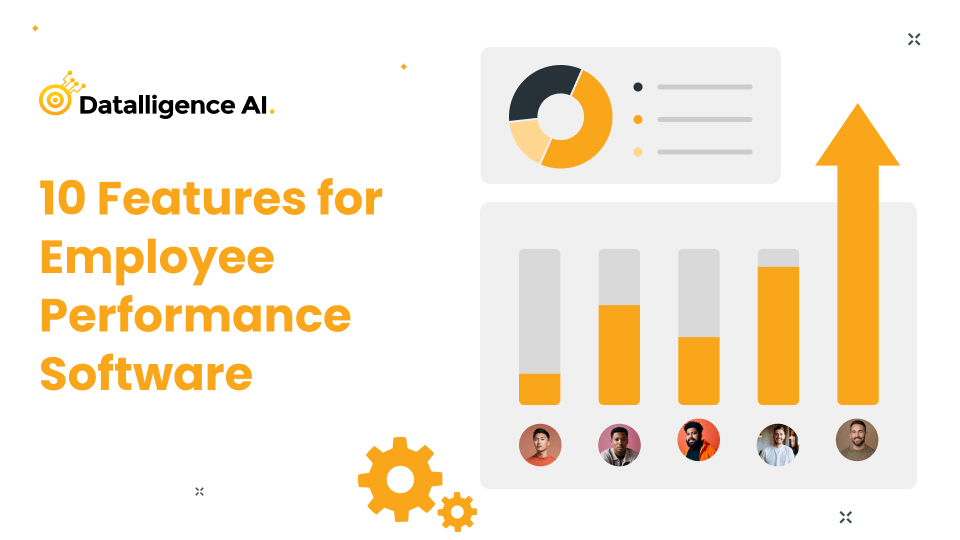Supply chain management has a rich history that dates back to the early 1900s when the focus was on improving manufacturing processes and reducing costs.
The first supply chain management concept was introduced by Ford Motor Company in 1913 when they implemented the assembly line to reduce production time and costs. The focus of supply chain management during this time was on the optimization of individual processes, rather than the entire supply chain.
In the 21st century, supply chain management has become more complex and global. Companies now have to manage their supply chains across multiple countries and regions, which has led to the development of new technologies and strategies to manage these complex supply chains. The focus is now on reducing risk, improving sustainability, and enhancing the customer experience.
The supply chain industry is growing at a massive rate, but How and Why do we need OKR to manage this?
In this blog, We shall go over How OKRs can help you.
How does OKR help the supply chain
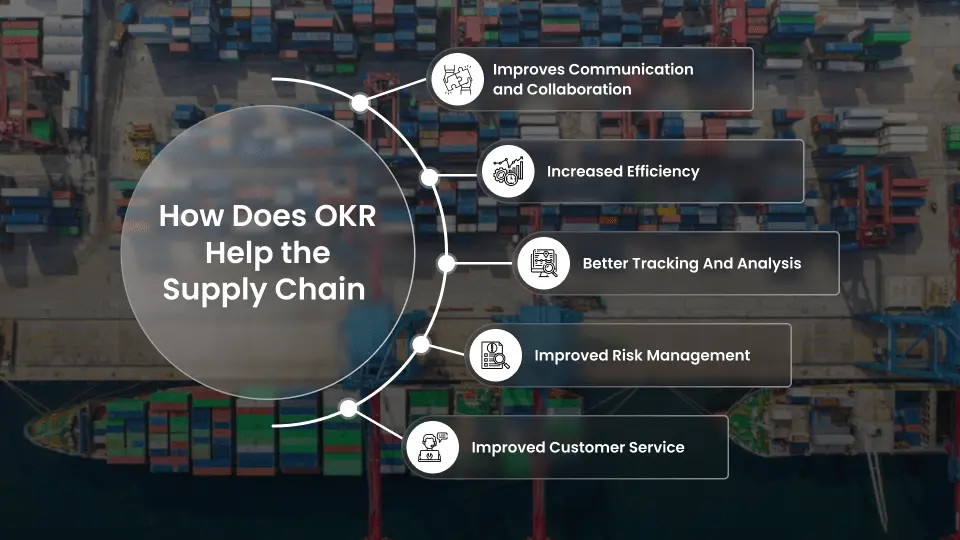
OKR software can greatly benefit supply chain management by providing a comprehensive and structured approach to goal setting and tracking. Here are some specific ways that OKR software can help:
Improves Communication and Collaboration
OKR software helps to streamline communication and collaboration within the supply chain. With clear objectives, team members are better able to understand their roles and how their tasks fit into the larger supply chain goals. This leads to better collaboration, as individuals are more aware of their impact on the broader goals of the organization.
Increased Efficiency
OKR software helps to improve the efficiency of the supply chain by setting clear goals and objectives, which helps to ensure that everyone is working towards the same goal. By focusing on key objectives, organizations can improve their processes, reduce waste, and increase productivity.
Better Tracking and Analysis
OKR software can track progress towards objectives, which is particularly useful in the supply chain where there are often multiple moving parts. With real-time tracking, it is easier to identify areas of improvement, adjust goals as needed, and take corrective action where necessary.
Improved Risk Management
OKR software can help identify risks in the supply chain and develop strategies to mitigate them. This is particularly important in global supply chains, where there are often multiple partners involved. With clear objectives, it is easier to identify potential risks and take action to prevent disruptions in the supply chains.
Improved Customer Service
By focusing on the right objectives, organizations can improve customer service by ensuring that products are delivered on time, in the right quantity, and quality. This can be particularly important in industries where customer satisfaction is a key differentiator, such as retail or consumer goods.
We have seen how OKRs help the supply chain. Now let us see the best 10 Examples for the supply chain.
10 Best OKR examples for Supply Chain
Objective 1: Improve On-Time Delivery
- KR 1: Reduce the percentage of late deliveries by 30%
- KR 2: Increase the percentage of on-time deliveries by 20%
- KR 3: Improve customer satisfaction rating by 15%
Objective 2: Increase Supplier Performance
- KR 1: Implement a supplier rating system and achieve an average rating of 4 out of 5
- KR 2: Reduce supplier lead time by 20%
- KR 3: Increase supplier capacity by 10% through effective collaboration and communication.
Objective 3: Reduce Inventory Holding Costs
- KR 1: Implement a new inventory management system and reduce inventory holding costs by 20%
- KR 2: Optimize inventory levels to reduce stockouts by 30%
- KR 3: Improve inventory turnover ratio by 15% through better demand forecasting and planning.
Objective 4: Improve Product Quality
- KR 1: Reduce the number of defective products by 50%
- KR 2: Increase customer satisfaction rating by 15%
- KR 3: Implement a continuous improvement process and achieve a 5% improvement in quality metrics.
Objective 5: Increase Supply Chain Visibility
- KR 1: Implement a real-time supply chain monitoring system.
- KR 2: Achieve a 95% accuracy in inventory tracking.
- KR 3: Increase transparency in supply the chain by implementing blockchain technology
Objective 6: Improve Transportation Efficiency
- KR 1: Reduce transportation costs by 10%
- KR 2: Implement a new routing system to optimize delivery routes.
- KR 3: Improve delivery time accuracy by 20%
Objective 7: Increase Warehouse Efficiency
- KR 1: Implement a warehouse management system and increase warehouse capacity by 30%
- KR 2: Reduce warehouse labor costs by 10%
- KR 3: Improve picking accuracy by 15% through the use of technology.
Objective 8: Improve Reverse Logistics
- KR 1: Reduce return processing time by 50%
- KR 2: Increase the percentage of returned products that are resold by 20%
- KR 3: Improve customer satisfaction rating for returns by 10%
Objective 9: Implement Sustainable Practices
- KR 1: Reduce carbon emissions from transportation by 20%
- KR 2: Implement a recycling program and achieve a 50% recycling rate.
- KR 3: Partner with suppliers who follow sustainable practices and achieve a 90% compliance rate.
Objective 10: Enhance Supply Chain Risk Management
- KR 1: Implement a risk management system and conduct a risk assessment for all suppliers.
- KR 2: Develop a contingency plan and test it with all suppliers.
- KR 3: Reduce the impact of supply chain disruptions by 50%.
Implementing OKR Software in the Supply Chain
Implementing an OKR software solution in supply chain management can revolutionize the way companies set and achieve their goals.
With an OKR tool, companies can define their objectives and key results, track progress and align everyone in the organization toward a common goal. This can help in streamlining the supply chain process, increasing efficiency, and reducing costs. By setting measurable and achievable goals, the company can continuously improve its supply chain process and remain competitive in the market.
The OKR software can also provide real-time data and analytics, enabling companies to make informed decisions and optimize their supply chain operations. With a robust OKR software solution, companies can enhance their supply chain management practices and achieve significant business growth.
Talk to our experts more about OKR Software
To learn more about the Supply chain OKRs, speak with our OKR experts. Our subject matter specialists will assist you in identifying the important KPIs and in developing OKRs that will boost revenue growth and profitability. Industry-neutral OKRs are particularly intriguing when they are used in sectors like Supply chains or Try “Datalligence” for free.

